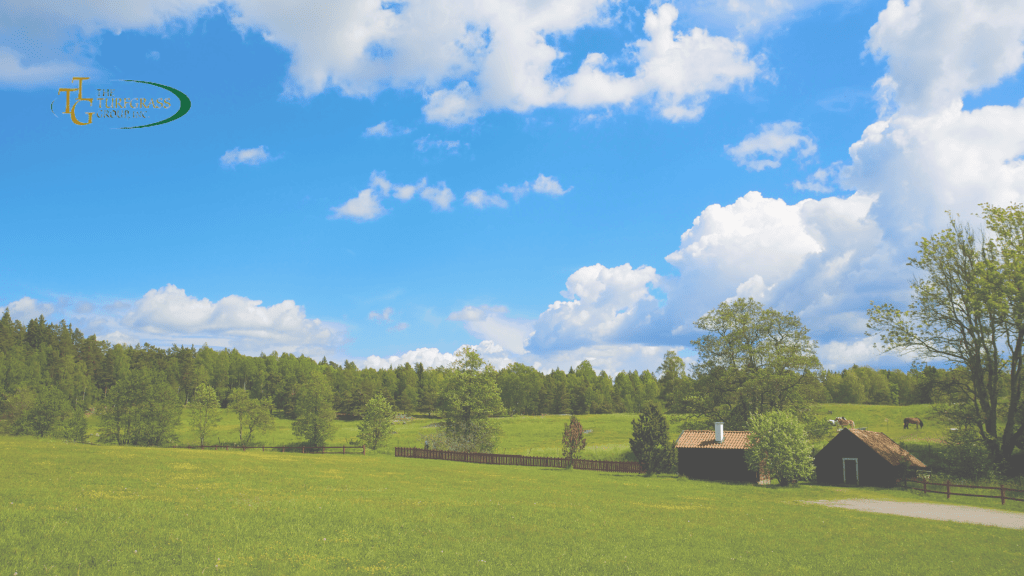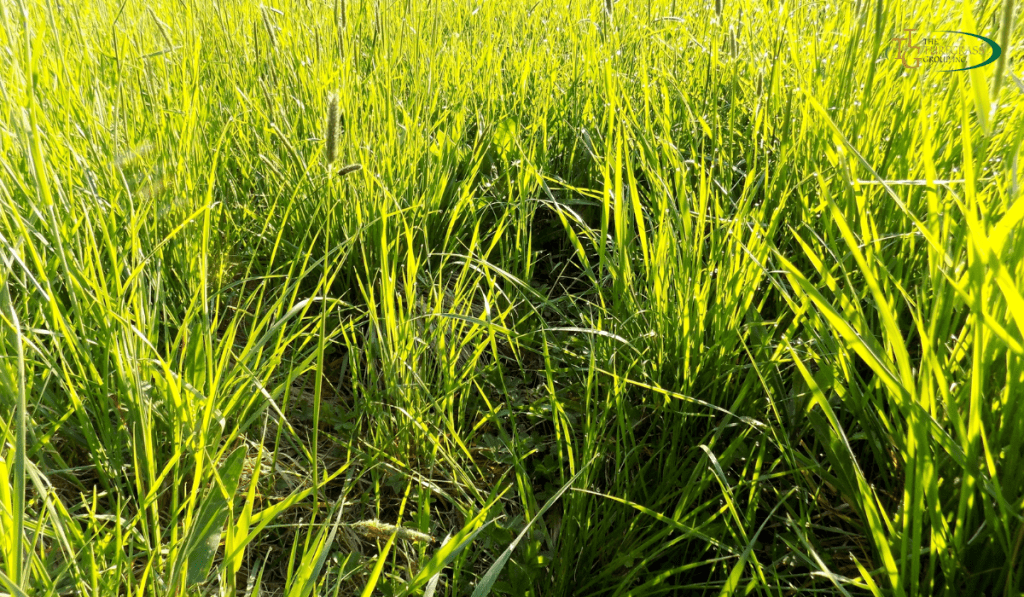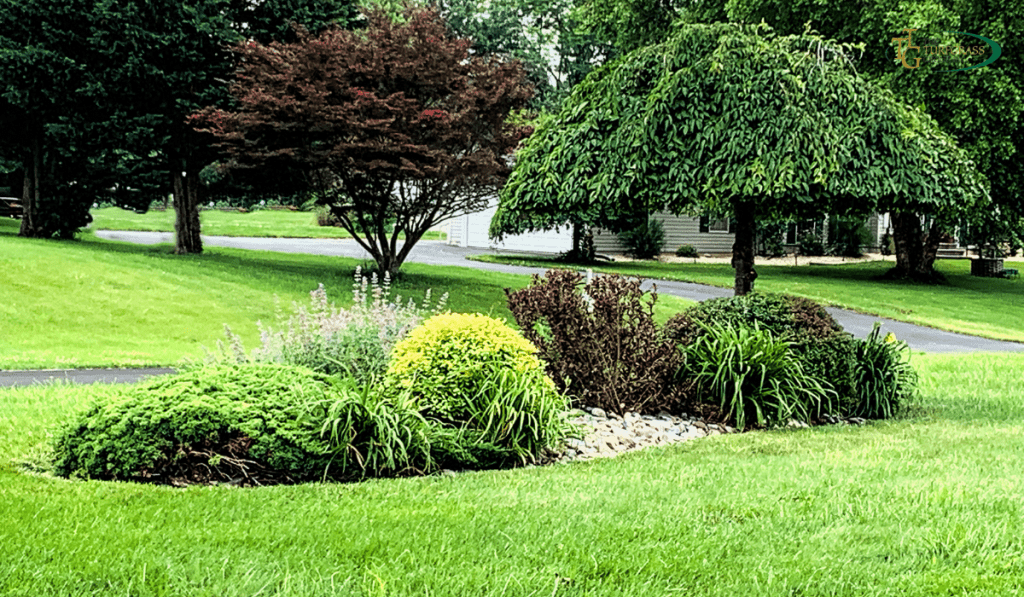
Which is Best for Your Lawn: Bermuda Grass or Crabgrass?
Bermuda grass Vs crabgrass are common grasses found in lawns. Bermuda grass is a warm-season grass known for its tolerance to heat, drought, and heavy foot traffic. It forms a dense, fine-textured turf and spreads through stolons and rhizomes.
In contrast, crabgrass is an annual weed with a lighter green color and coarser texture than Bermuda grass. It thrives in warm weather and spreads rapidly through seed germination. Unlike Bermuda grass, crabgrass grows in clumps and does not have stolons or rhizomes.
Another difference is their appearance. Bermuda grass has narrow, pointed leaves that create a uniform turf with a low mowing height. Crabgrass leaves are wider and have a rough texture, growing in patches that stand out from the surrounding turf.
Furthermore, their life cycles vary. Bermuda grass is a perennial grass that survives year-round, going dormant in colder months and regrowing from its extensive root system when the weather warms up. Crabgrass, on the other hand, is an annual grass that completes its life cycle within a single year. It germinates in spring, grows vigorously during summer, produces seeds, and dies off in fall.
Understanding these distinctions between Bermuda grass and crabgrass is essential for effective lawn management and controlling the spread of crabgrass in Bermuda grass lawns.
Bermuda Grass

Appearance and Growth Habit
Bermuda grass, a warm-season grass, gains recognition for its fine texture and dense growth. It has a vibrant green color and forms a thick turf when properly maintained. The grass blades are narrow and have a pointed tip, giving it a distinct appearance.
Growing Conditions
Bermuda grass thrives in warm and sunny climates. It requires full sun exposure to grow well and can tolerate a wide range of soil conditions, including poor soil quality. It is highly drought-tolerant and can withstand high temperatures.
Maintenance and Treatment
To maintain Bermuda grass, regular mowing is essential. It should be mowed to a height of around 1 to 1.5 inches. Proper irrigation and fertilization are also necessary to promote healthy growth and prevent weed invasion. Bermuda grass can be susceptible to certain diseases and pests, so timely treatment is important.
Crabgrass
Appearance and Growth Habit
Crabgrass, on the other hand, is an annual weed that can quickly invade lawns and disrupt the appearance of the turf. It has a lighter green color compared to Bermuda grass and has wider blades with a coarse texture. Crabgrass spreads horizontally, forming low-growing clumps.
Growing Conditions
Crabgrass thrives in hot and sunny conditions, similar to Bermuda grass. It prefers soil with poor fertility and can quickly establish itself in bare or thin areas of the lawn. Crabgrass seeds germinate when soil temperatures reach around 55 to 60 degrees Fahrenheit.
Bermuda Grass vs Crabgrass – Aggressiveness and Invasiveness
Bermuda grass and crabgrass differ significantly in terms of aggressiveness and invasiveness. While Bermuda grass is intentionally cultivated for its desirable traits, crabgrass is considered a weed due to its ability to quickly take over lawns and compete with desirable grass species.
Controlling Crabgrass in Bermuda Grass Turf
Controlling crabgrass in Bermuda grass turf requires a proactive approach. Pre-emergent herbicides can be applied before the crabgrass seeds germinate to prevent their growth. Post-emergent herbicides can be used selectively to target and eliminate crabgrass without harming the Bermuda grass. Additionally, maintaining a thick and healthy Bermuda grass turf through proper mowing, watering, and fertilization can help prevent crabgrass invasion.
The Main Differences – Crabgrass vs Bermuda Grass
The main differences between crabgrass and Bermuda grass lie in their growth habits, appearance, and purpose. Bermuda grass is a desirable turfgrass used in lawns and sports fields, while crabgrass is an invasive weed that can quickly overtake lawns. Bermuda grass has a finer texture, denser growth, and requires specific maintenance practices for optimal growth.
Bermuda Grass and Crabgrass
Bermuda grass and crabgrass are two distinct grass species that vary in their appearance, growth habits, and purpose. While Bermuda grass is cultivated for its desirable qualities, crabgrass is considered a nuisance weed. Understanding the differences between the two can help homeowners effectively manage their lawns and maintain a healthy turf.
FAQs
Will crabgrass killer also kill Bermuda grass?
No, crabgrass killers are formulated to selectively target and eliminate crabgrass without harming desirable turfgrass species like Bermuda grass. It closely adheres to the H2 guideline provided. When used according to the instructions, crabgrass killers should not cause harm to Bermuda grass.
How do you control crabgrass in Bermuda grass turf?
Controlling crabgrass in Bermuda grass turf involves a combination of preventive and corrective measures. Applying pre-emergent herbicides before crabgrass seeds germinate can help prevent their growth. To address existing crabgrass, you can selectively use post-emergent herbicides that target and eliminate the weed without causing harm to Bermuda grass. Regular mowing at the appropriate height, maintaining proper irrigation and fertilization, and overseeding thin areas of the lawn with Bermuda grass can also help suppress crabgrass growth.
What grass will choke out Bermuda grass?
Tall fescue grass is known to have a competitive advantage over Bermuda grass and can help choke it out when properly established. Tall fescue has a coarser texture and deeper root system, allowing it to outcompete Bermuda grass in certain conditions. However, it’s important to note that completely eradicating Bermuda grass can be challenging, and a combination of management strategies may be required to control its spread.
What is the best crabgrass killer that won’t kill Bermuda grass?
There are several selective herbicides available that effectively target and control crabgrass without harming Bermuda grass. Common active ingredients in such herbicides include quinclorac, fenoxaprop, and dithiopyr. It is advisable to carefully follow the product instructions and select herbicides that are specifically labeled for use on Bermuda grass turf when targeting crabgrass.
What will kill crabgrass but not regular grass?
Selective herbicides designed to target and kill crabgrass while leaving regular grass unharmed can be used for effective control. These herbicides contain specific active ingredients that target the physiological traits of crabgrass without affecting desirable turfgrass species. Following the instructions provided by the manufacturer is crucial to ensure proper application and safety for the regular grass.

What is the best thing to kill weeds in Bermuda grass?
For broadleaf weed control in Bermuda grass, selective herbicides containing active ingredients such as 2,4-D, dicamba, or mecoprop can be effective. These herbicides specifically target broadleaf weeds while minimizing harm to Bermuda grass. It’s important to identify the specific weeds present and choose an appropriate herbicide labeled for use on Bermuda grass.
Why does my lawn have so much crabgrass?
Several factors can contribute to a high presence of crabgrass in lawns. Poor lawn maintenance practices, such as inadequate mowing height, improper irrigation, and insufficient fertilization, can create conditions that favor crabgrass growth. Additionally, bare or thin areas in the lawn provide an opportunity for crabgrass seeds to germinate and establish. Implementing proper lawn care techniques, including regular maintenance and preventive measures, can help reduce the occurrence of crabgrass.
Does watering lawn prevent crabgrass?
While adequate watering is essential for maintaining a healthy lawn, it alone cannot prevent the growth of crabgrass. Crabgrass thrives in warm and sunny conditions, and its seeds can germinate even with regular watering. However, a well-maintained lawn with proper irrigation practices, combined with other preventive measures like pre-emergent herbicide application, can help minimize the growth and spread of crabgrass.
Will overseeding stop crabgrass?
Overseeding alone is not a reliable method to control or prevent crabgrass. Crabgrass seeds can still germinate and compete with newly overseeded grass. However, overseeding can help improve the density of the Bermuda grass turf, making it more resistant to crabgrass invasion. Combining overseeding with other preventive measures like proper mowing, irrigation, and targeted herbicide application can enhance the overall health and resilience of the lawn.
Will Bermuda choke out crabgrass?
When well-maintained and established, Bermuda grass exhibits a vigorous growth habit, allowing it to outcompete crabgrass. With proper lawn care practices, including regular mowing, adequate irrigation, and appropriate fertilization, Bermuda grass can form a dense turf that restricts the growth of crabgrass. However, it’s important to note that complete eradication of crabgrass may require additional measures such as targeted herbicide applications and diligent lawn maintenance.
What does vinegar do to Bermuda grass?
Some people use vinegar, a common household ingredient, as a natural weed killer. When applied directly to Bermuda grass, vinegar can damage and potentially kill the grass. However, it’s important to exercise caution when using vinegar as a weed control method, as it can also harm desirable plants and grasses. It’s advisable to explore other targeted weed control options specifically labeled for use on Bermuda grass.
Should Bermuda grass be bagged or mulched?
Bermuda grass clippings are typically small and can decompose quickly, providing nutrients back to the soil. Mulching the grass clippings by using a mulching mower can help retain moisture, suppress weed growth, and contribute to a healthier Bermuda grass turf. However, if the lawn is excessively overgrown or the clippings are too long, it may be necessary to bag them temporarily. Ultimately, regular mowing and mulching of Bermuda grass clippings can benefit the overall health of the turf.
Will Bermuda grass take over other grass?
Bermuda grass has a strong growth habit and can be quite aggressive, making it capable of invading and outcompeting other grass species if given the opportunity. Its rhizomes and stolons allow it to spread rapidly and establish new growth points. Properly containing Bermuda grass within its designated area is essential to prevent it from encroaching on other grass species or undesired landscapes.
Can you put down too much Bermuda seed?
Overseeding Bermuda grass can be beneficial for thickening the turf and filling in bare spots. However, it’s important not to put down an excessive amount of Bermuda seed, as overcrowding can lead to competition for resources and result in a weakened lawn. To achieve optimal results, individuals can follow the seeding rates recommended by the seed manufacturer or seek advice from a local lawn care professional.
How do I make my Bermuda grass thicker and greener?
To achieve a thicker and greener Bermuda grass, individuals can take several proactive steps. Regular mowing at the appropriate height, typically around 1 to 1.5 inches, promotes lateral growth and denser turf. Proper irrigation is crucial, providing sufficient water to prevent drought stress while avoiding excessive moisture. Adequate fertilization with a balanced fertilizer formulated for Bermuda grass can provide essential nutrients for healthy growth. Additionally, addressing any weed or pest issues promptly and implementing proper weed control measures can help maintain a thicker and greener Bermuda grass lawn.
What can I use to kill crabgrass in Bermuda grass?
Using selective herbicides specifically formulated for controlling crabgrass in Bermuda grass is an effective method. These herbicides effectively target and eliminate crabgrass without causing harm to the desirable turf.
What kills crabgrass permanently?
While there is no guaranteed method for permanent eradication of crabgrass, a combination of preventive measures and targeted herbicide applications can help control its growth. Regular lawn maintenance, such as proper mowing, watering, and fertilization, can promote a healthy Bermuda grass turf that is more resistant to crabgrass invasion. Additionally, applying pre-emergent herbicides before crabgrass seeds germinate and post-emergent herbicides for existing crabgrass can effectively suppress its growth. Consistent and diligent lawn care practices, combined with targeted weed control measures, can help manage crabgrass and minimize its presence in Bermuda grass lawns.
How do you kill crabgrass in Bermuda in the summer?
Controlling crabgrass in Bermuda grass during the summer months requires a combination of strategies. Since crabgrass is an annual weed that thrives in warm weather, it’s important to take proactive measures. Spot-treat the crabgrass with a post-emergent herbicide labeled for use on Bermuda grass. Apply the herbicide directly to the crabgrass, following the manufacturer’s instructions carefully. Additionally, maintaining proper lawn care practices such as regular mowing, watering, and fertilization will help promote a healthy Bermuda grass turf that can better compete with crabgrass.
Remember that consistent maintenance and proactive weed control measures are key to keeping crabgrass at bay in Bermuda grass lawns. By understanding the characteristics of both Bermuda grass and crabgrass, implementing the appropriate lawn care practices, and using targeted weed control methods, you can enjoy a lush and thriving Bermuda grass turf while effectively managing and minimizing the presence of crabgrass.
The Bottom Line
In conclusion, Bermuda grass and crabgrass are distinct grass species with different characteristics and purposes.
Bermuda grass showcases a desirable turfgrass quality, renowned for its fine texture and dense growth. In contrast, crabgrass, an invasive weed, has the ability to rapidly invade lawns. By implementing proper lawn maintenance practices and targeted weed control measures, homeowners can keep their Bermuda grass turf free from crabgrass and enjoy a lush and healthy lawn.